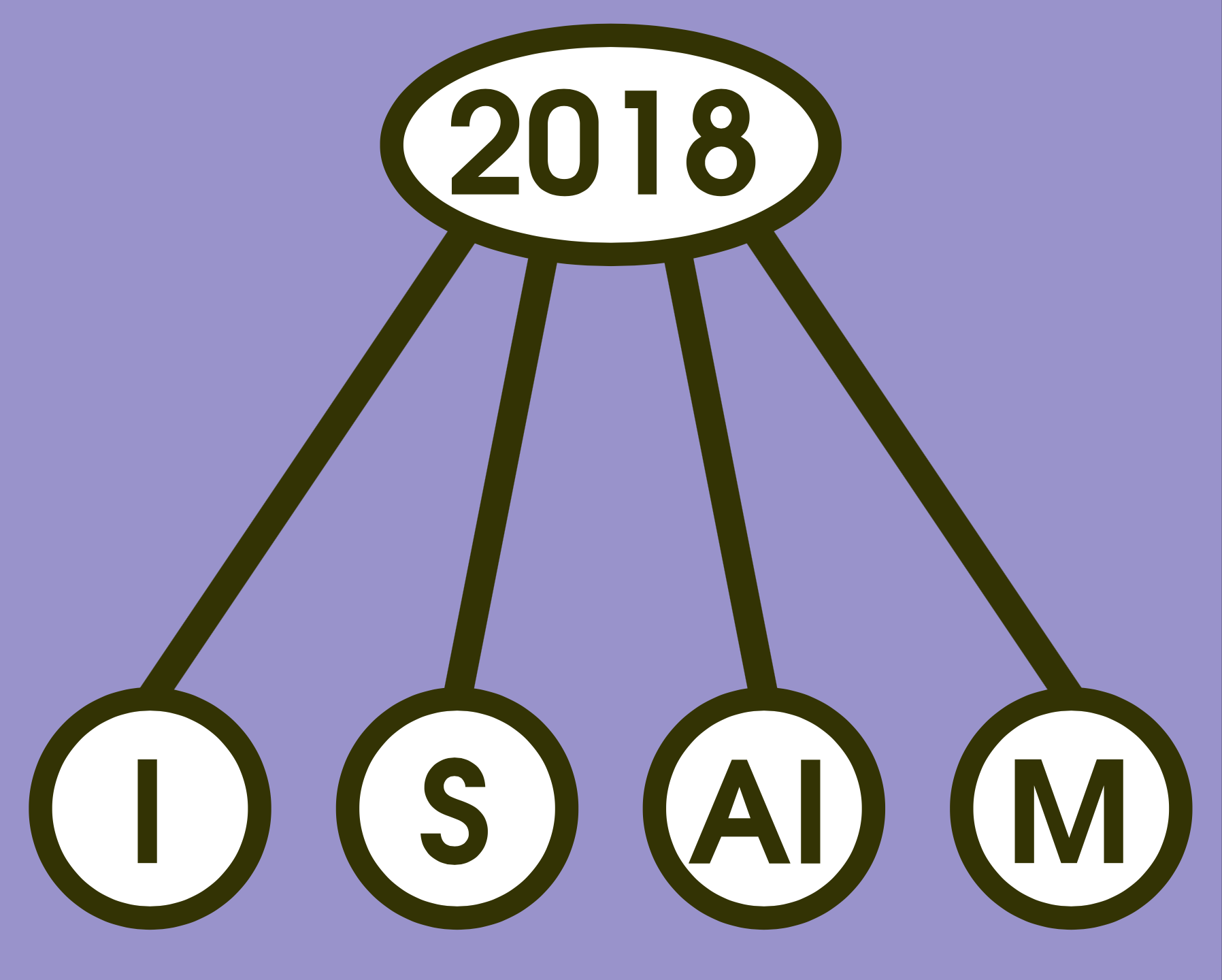Special Sessions
ISAIM 2018 will feature several special sessions:
- Flow Optimization in Traffic Networks
- Boolean and pseudo-Boolean Functions
- Formalising Robot Ethics
- Theory of Machine Learning
- Applications of SAT
The special session on Topological Reasoning and Data Analyses has been canceled.
Flow Optimization in Traffic Networks
Organizers: Michael Albert and Guni Sharon
Connected and autonomous vehicle technology has advanced rapidly in recent years. These technologies create possibilities for advanced AI-based traffic management techniques. Developing such techniques is an important challenge and opportunity for the AI community as it requires synergy between experts in game theory, multiagent systems, behavioral science, and flow optimization. This special session aims to bring together scientists across these disciplines to discuss the latest results and research challenges.
Boolean and pseudo-Boolean Functions
Organizers: Endre Boros and Yves Crama
Boolean and pseudo-Boolean functions are pervasive today in all areas of mathematics, computer science, operations research, various sciences and engineering. An ever increasing number and areas of applications demand new results from both structural and algorithmic points of views. The special sessions aim at bringing together researchers from all walks of science to discuss the latest results and the most important open problems.
Formalising Robot Ethics
Organizers: Michael Fisher and Marija Slavkovik
In the future autonomous robotic systems are expected to be common, not only in factories and on our roads, but in domestic and health-care situations. This new generation of intelligent machines will be required to act autonomously, yet function as part of our society. Societally integrated machines will encounter not just safety issues, but ethical issues. While there has been a large amount of work in Philosophy on a range of ethical theories, building verifiable/certifiable ethical behaviour into artificial agents still remains a problem. A key aspect of this is to be able to, precisely and unambiguously, formalise exactly what ethical behaviour is required. This session is intended to bring together researchers working on robot/machine ethics, particularly the formalisation of these, and to discuss the latest results, the open problems, and the main challenges for the future.
Theory of Machine Learning
Organizer: Lev Reyzin
Machine learning theory focuses on deriving algorithms with provable guarantees and on developing models that capture various learning phenomena. Its advances have lead to new insights and practical approaches to a variety of machine learning and AI challenges. Machine learning theory, as a field, draws on a variety of tools from theoretical computer science, mathematics, optimization, and statistics. This special session aims to bring together scientists across these disciplines to discuss the latest results and research challenges.
Applications of SAT
Organizer: Miroslav N. Velev
In the last 17 years, significant progress was made in the field of Boolean Satisfiability (SAT). As a result, SAT solvers are now 4 – 5 orders of magnitude faster, and scale for solving of Boolean problems that are 4 – 5 orders of magnitude larger. This technology opens the possibility to solve efficiently problems from many domains by exploiting efficient translations of the original problems to equivalent Boolean problems that can then be solved with the current state-of-the-art SAT solvers. The first presentation will describe the Cryptol Language for high assurance computing and its application to proving properties of algorithms by using SAT and Satisfiability Modulo Theories (SMT) solvers. The second presentation will introduce the use of SMT-based reasoning about data integrity and compliance in data bases. The third presentation will evaluate techniques for efficient translation of Boolean formulas to Conjunctive Normal Form (CNF) in formal verification of complex pipelined, superscalar, and VLIW microprocessors modeled at a high level of abstraction.
